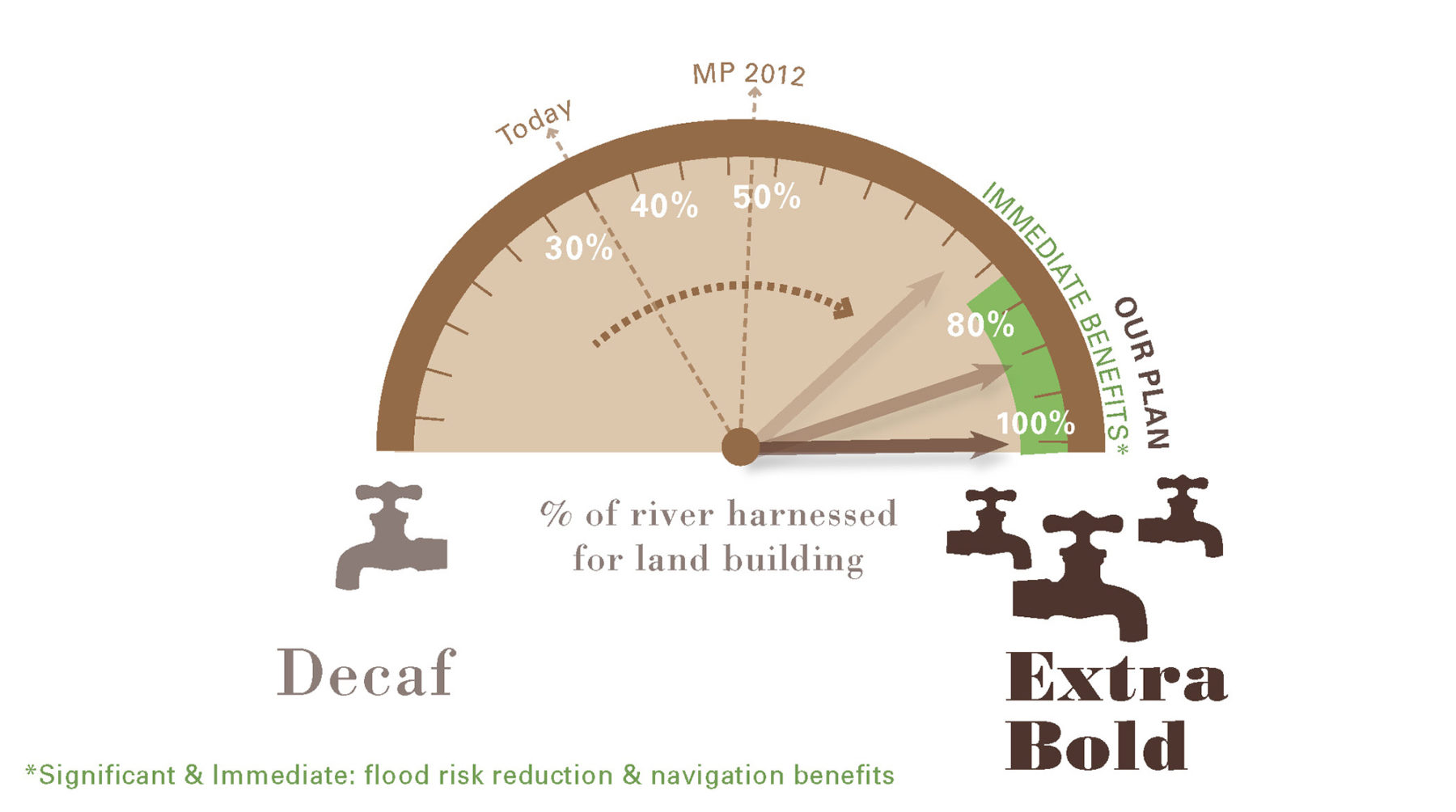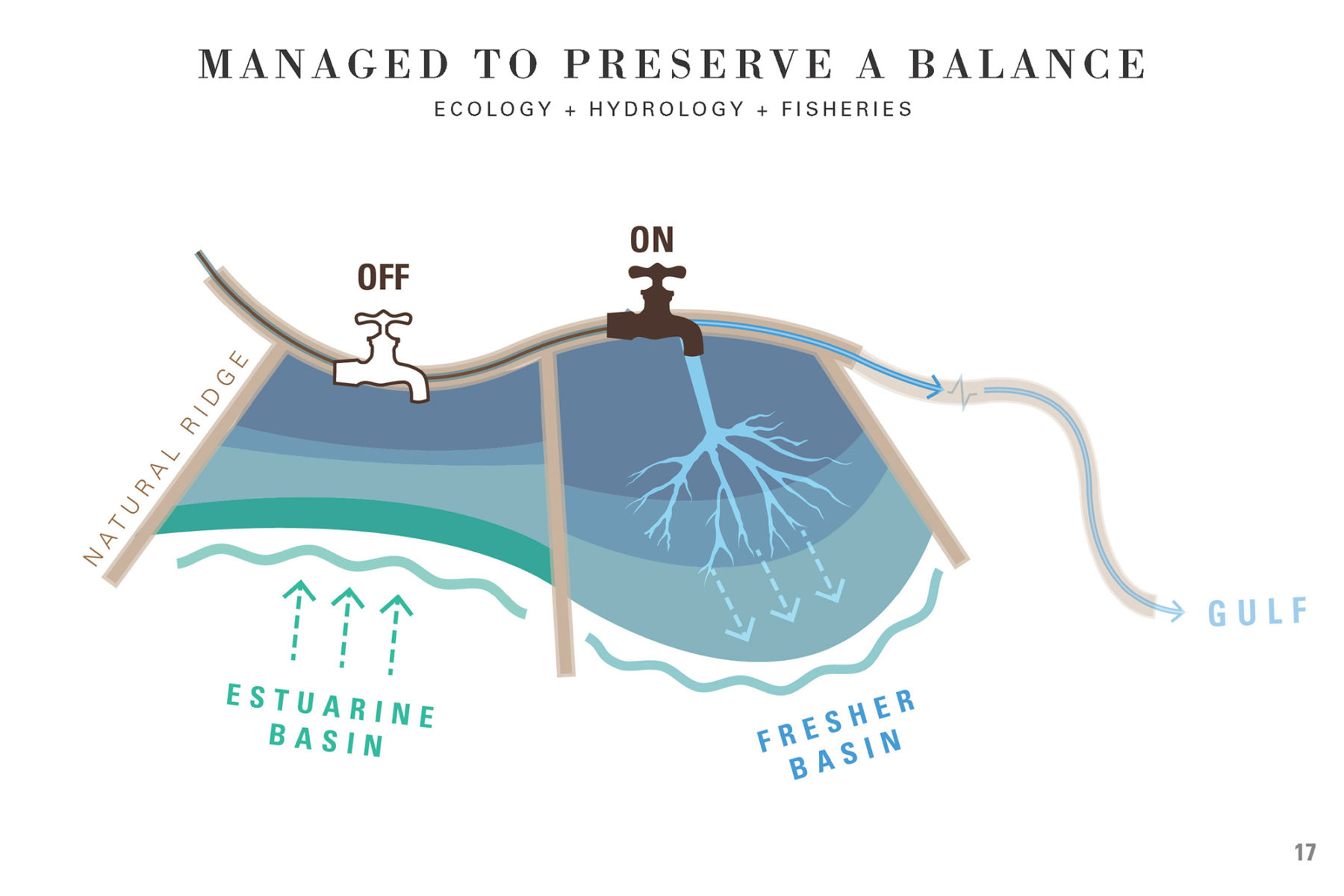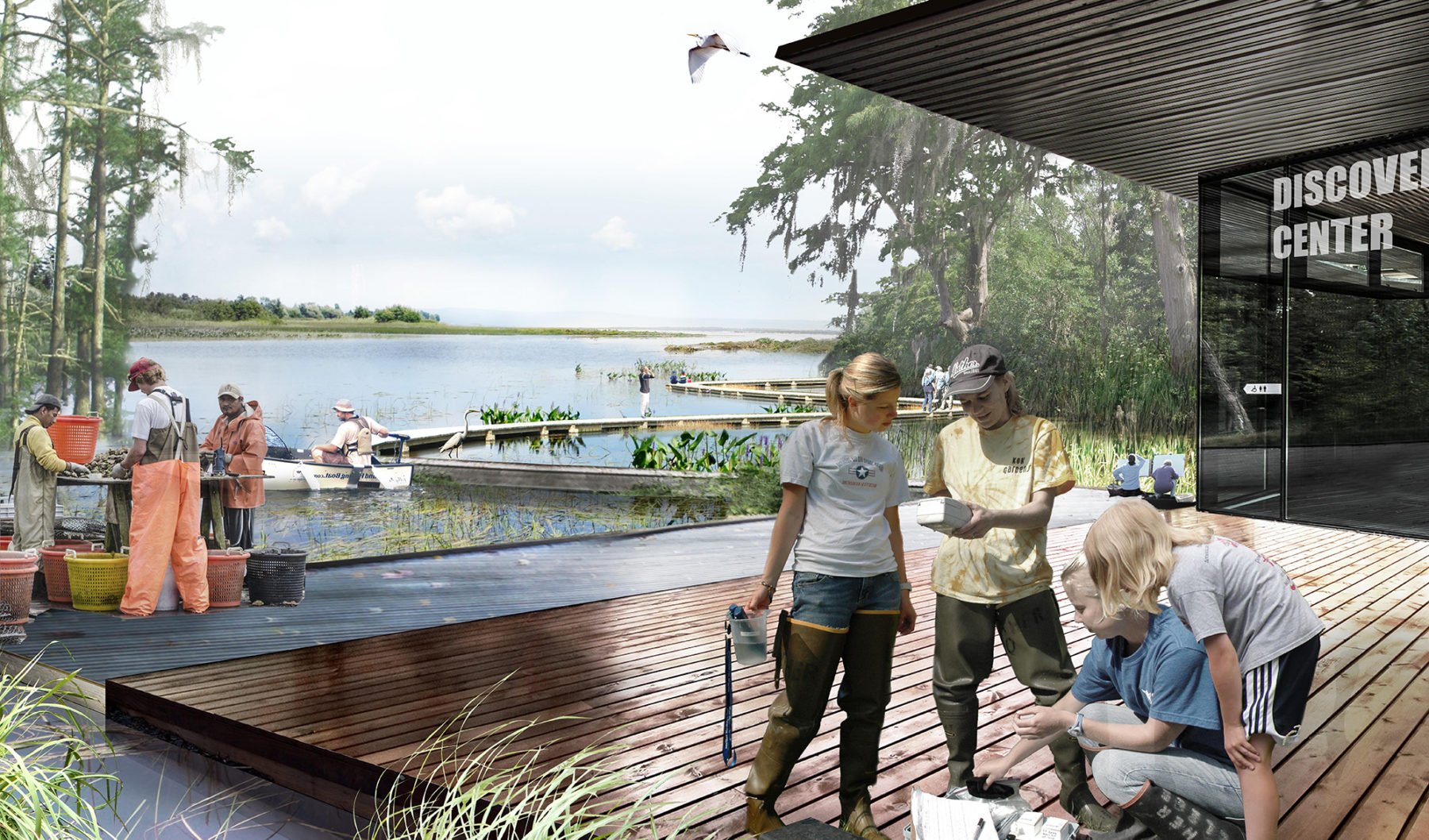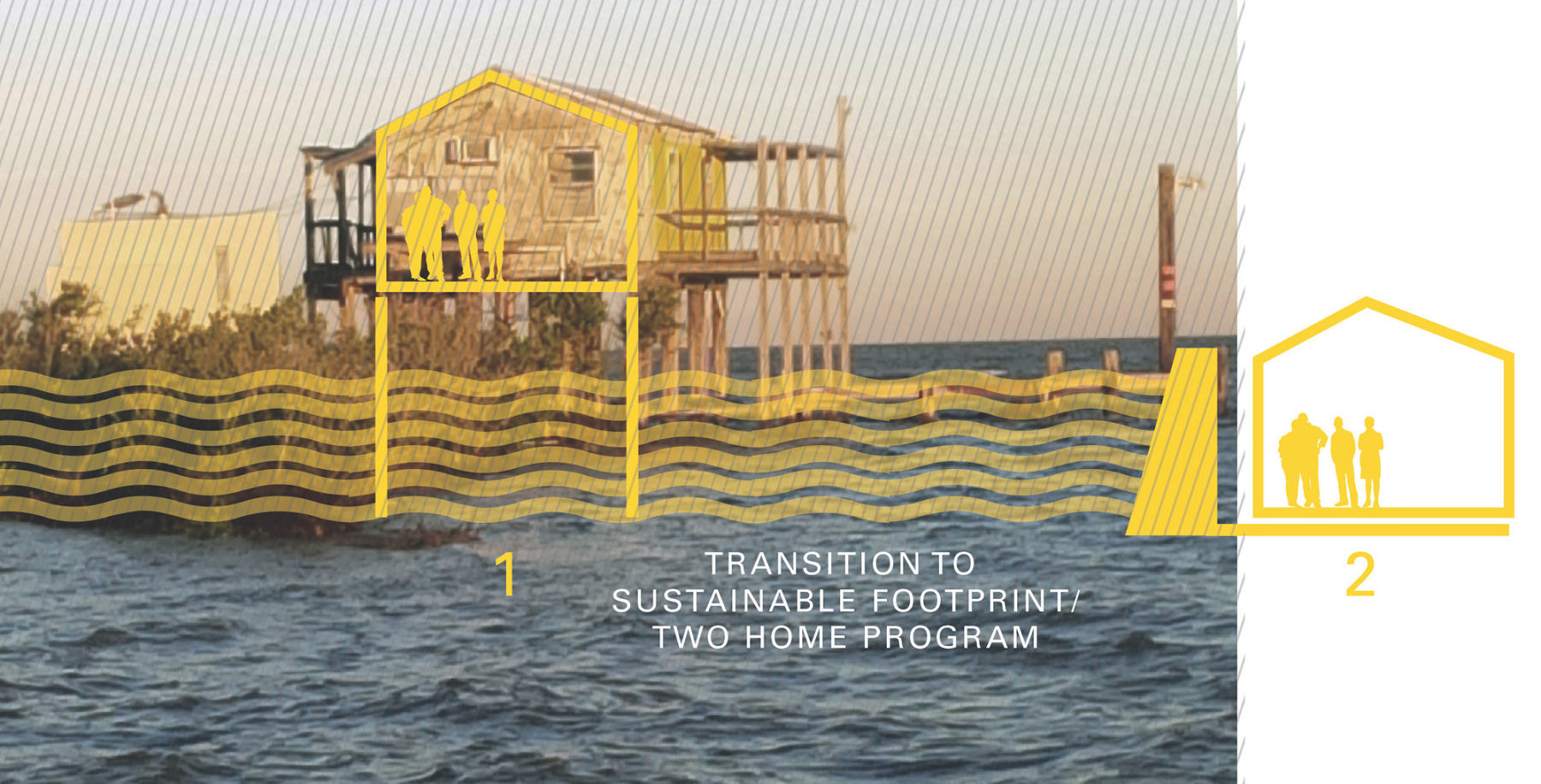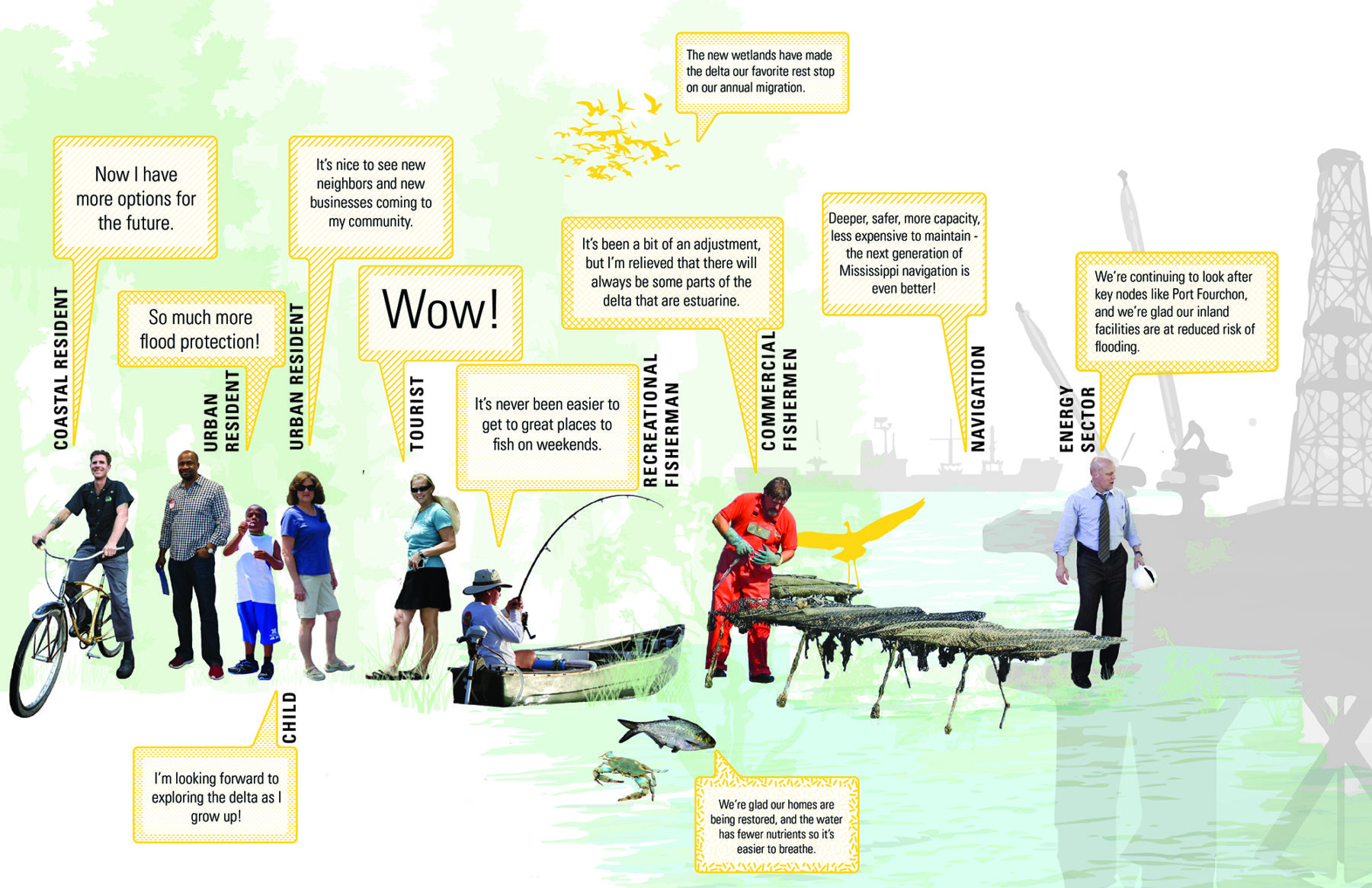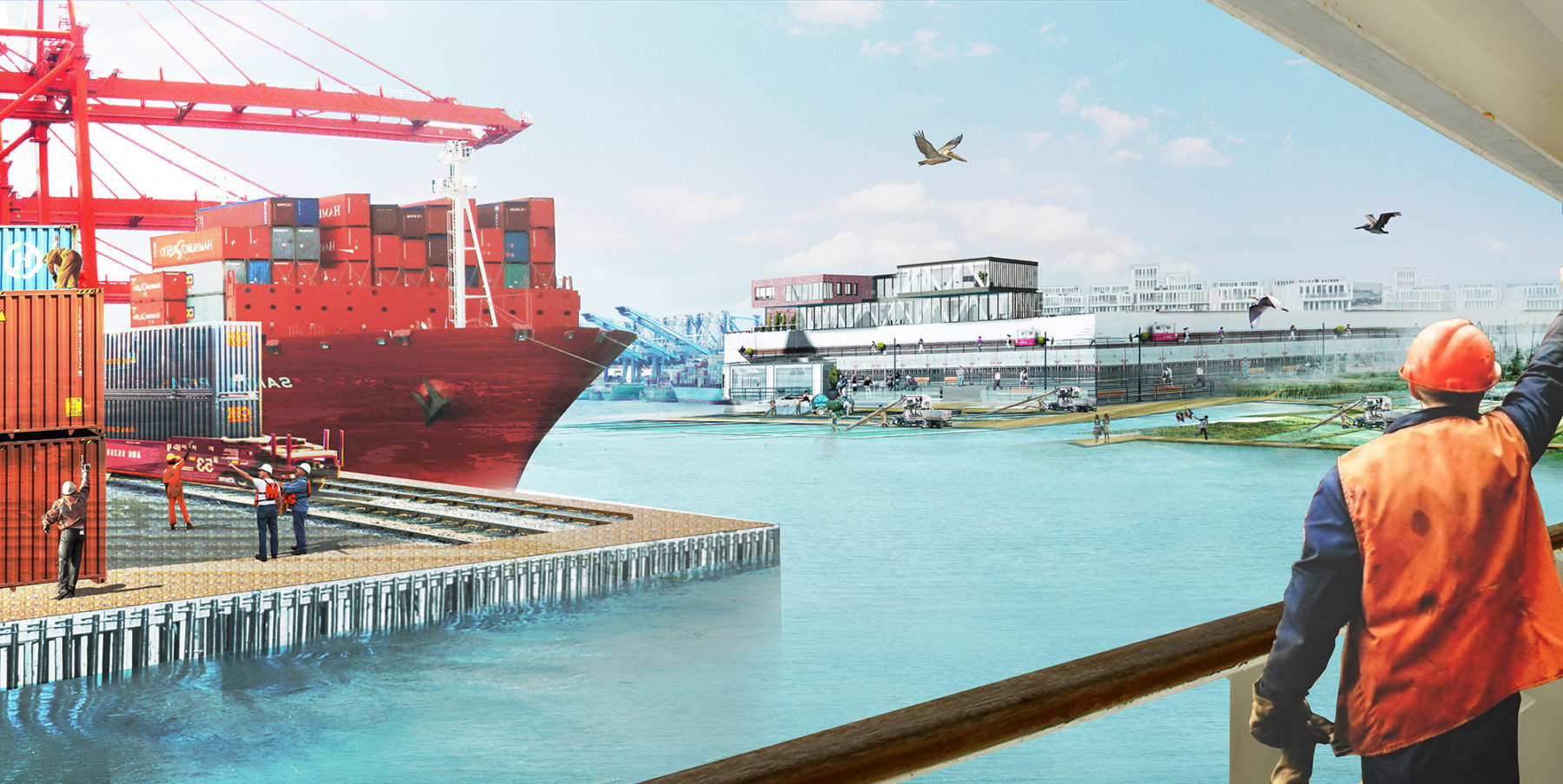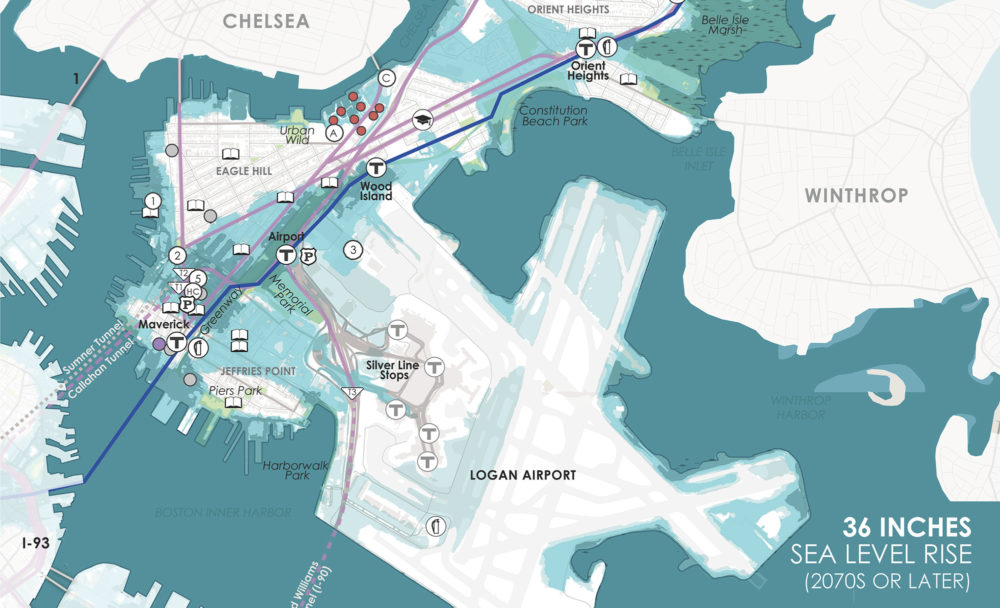
Climate Ready Boston
Boston, MA
 Sasaki
Sasaki
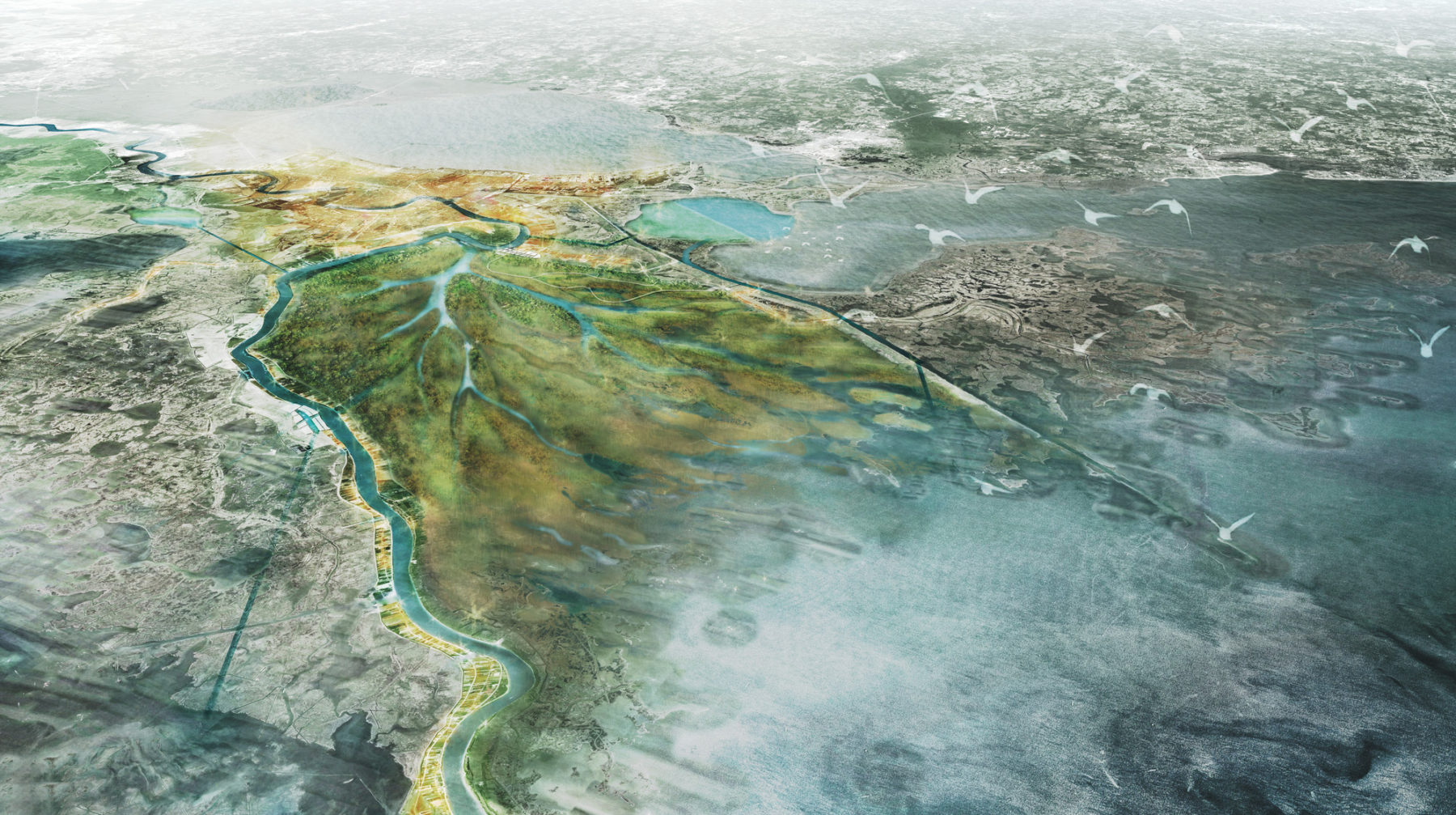
For most of the Mississippi River Delta’s history, its residents adapted to life within the natural ebbs and flows of the dynamic Delta. The channelization of the Mississippi River over the past century through dams, levees, and river structures has forced sediment to bypass the wetland landscapes it once replenished, and valuable and protective wetlands are disappearing at alarming rates.
With much of the land of the Delta less than three feet above sea level, the combination of increasing sea level rise and continued land sinking threaten to submerge a large part of the delta in the next 50 to 150 years, putting its economy, ecology, and cultures at risk.
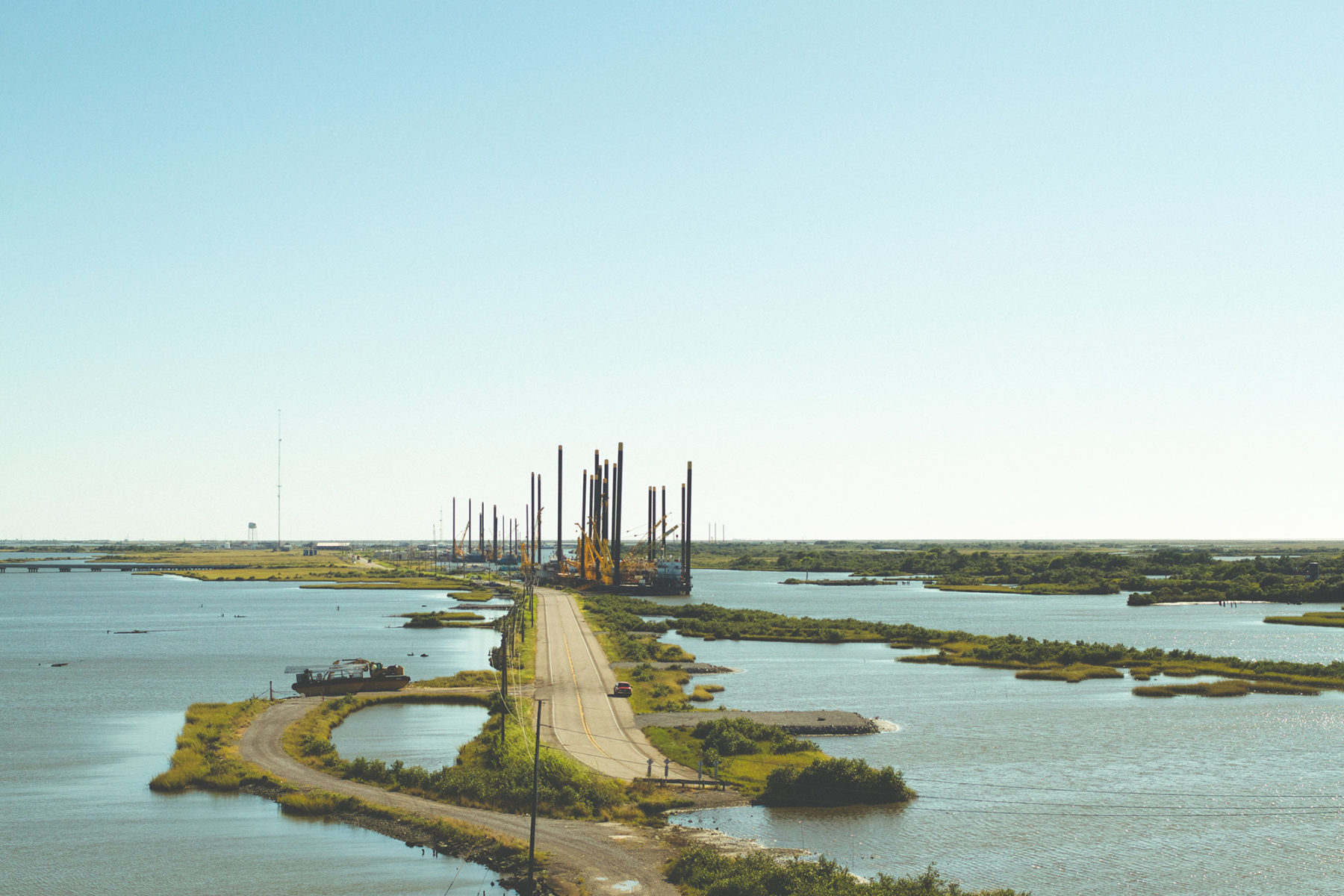
Changing Course, an independent initiative directed by leaders in Louisiana’s civic, industry, and academic communities along with national experts in coastal resiliency, engineering, and design, was formed to address these issues through an international design competition. Changing Course has brought together teams of the world’s leading engineers, scientists, planners and designers to develop solutions towards achieving a self-sustaining delta ecosystem. Sasaki, as part of a multi-disciplinary international team led by Baird & Associates, created a master plan that outlines a carefully-crafted, bold, and strategic set of actions to protect and expand the incredibly rich heritage, ecologies, and economies of the Delta.
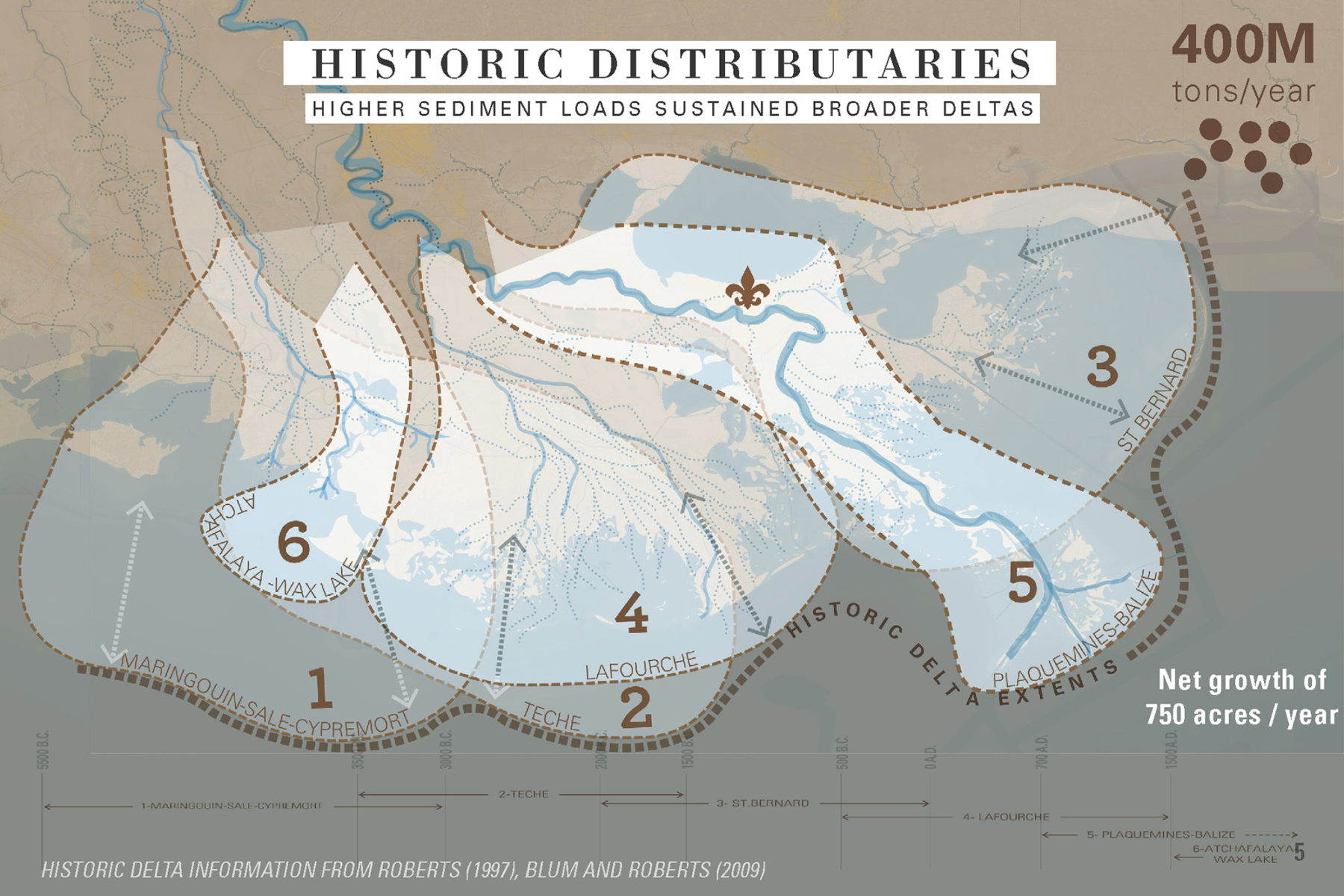
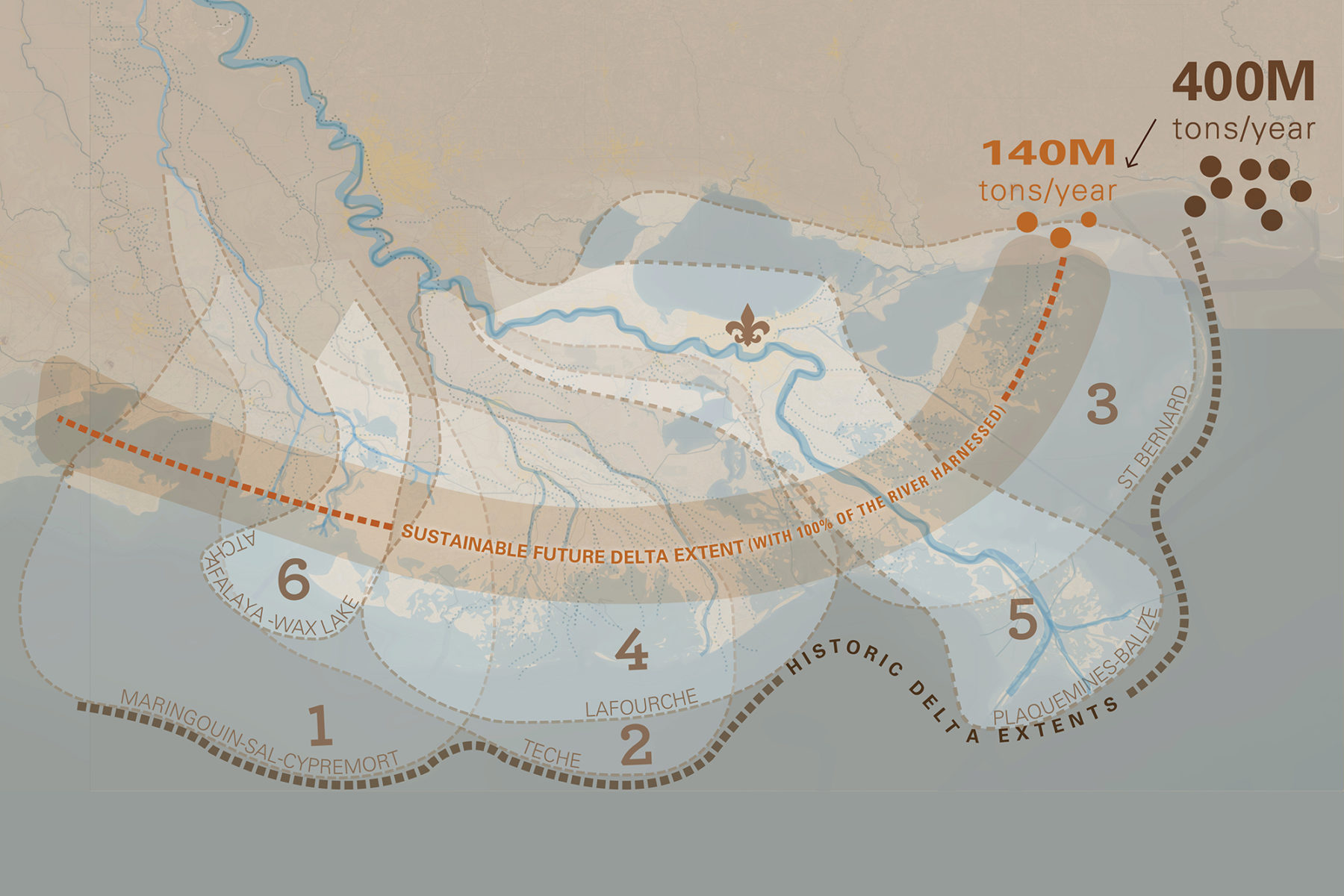
For many people of the Delta, life is largely defined by the broader ecological context and a series of deep social networks. This ecological context includes the waterways and wetlands that support the local economy, often through generational vocations such as fishing, oystering and rigging. The erosion of the lower Mississippi River Delta will increasingly challenge this way of life. Most Delta ecologists agree, for example, that while the estuarine environments of the Delta continue to flourish today, a tipping point is coming where wetland loss will lead to a rapid decline in fish abundance. Rising sea levels could impact existing fisheries by changing the salinity levels in the Delta and areas suitable for oysters could change from where they are today. Strong social networks within this community make relocation a significant challenge, even in the face of increasing flooding, land loss and ecological uncertainty. The plan considers many interconnected and complex challenges to preserve the community’s way of life in the face of environmental, ecological, technological and social change.
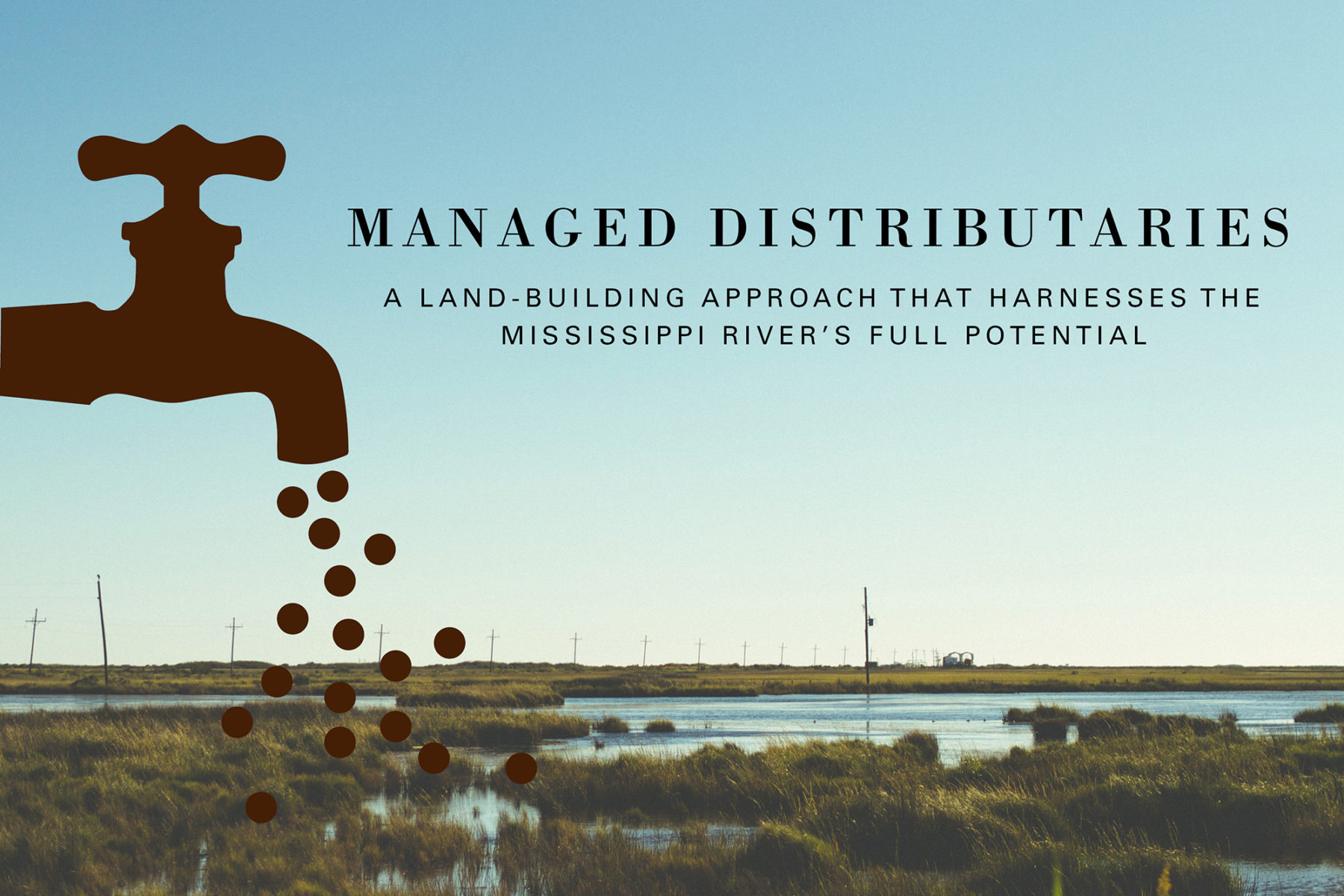
The team’s plan harnesses the full land-building potential of the Mississippi River through the opening and management of new river mouths over time to receive the river’s sediment, building land and wetlands where they have the best chance of success. The result will be a more compact, robust Deltaic landscape from Vermilion Bay to Mississippi Sound for generations and centuries to come. The team’s proposed approach delivers immediate gains by reducing flood risk and related uncertainty for the Delta’s people; opening significant opportunities for navigation and marine commerce; and helping maintain and expand its economies.
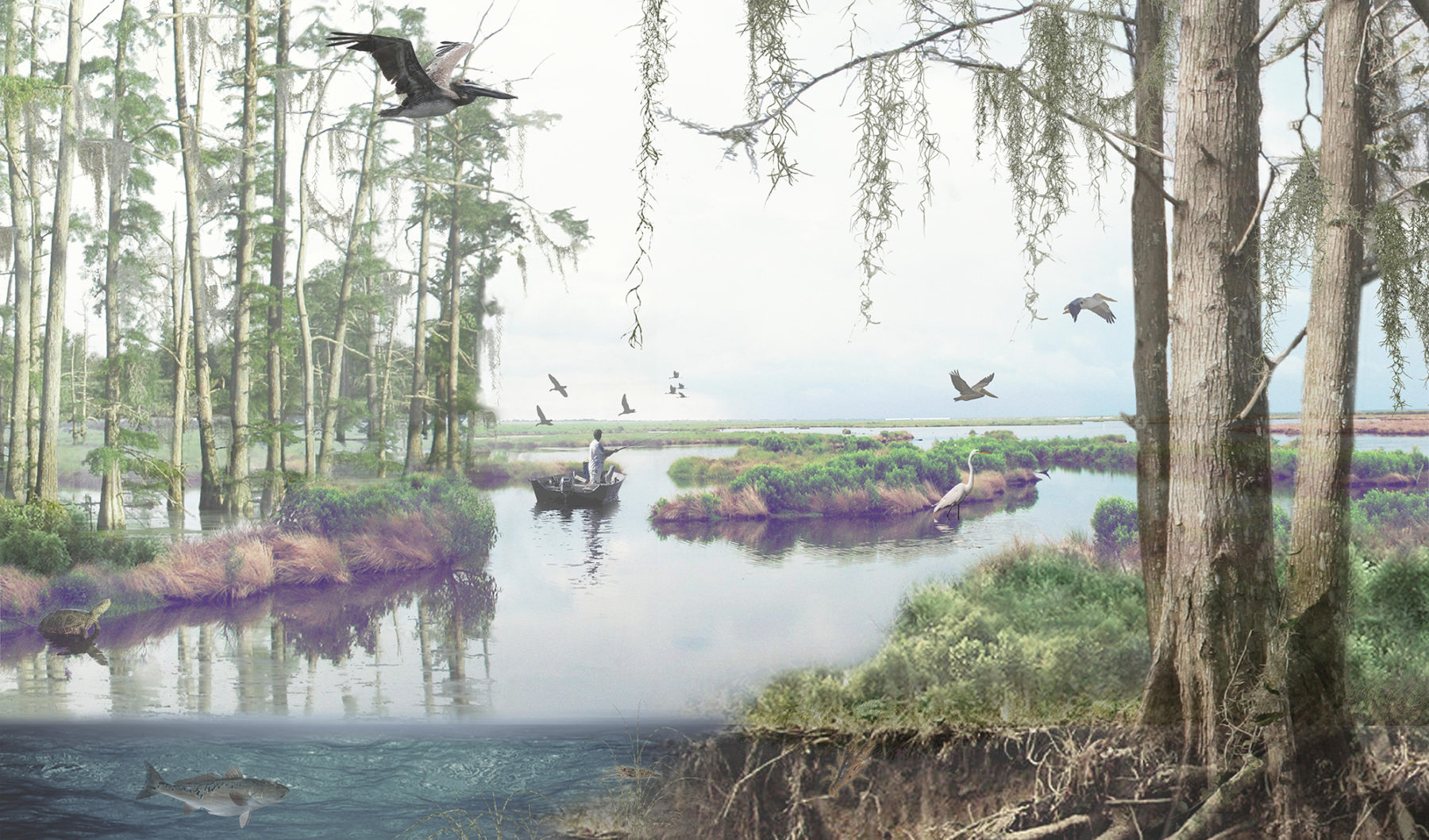
To find an equitable balance between land building with the river and preservation of estuarine areas, the plan proposes to cycle delta building between separate basins across the Delta to mimic natural deltaic processes. A key tenet of the plan is equity and transparency to empower the Delta’s people with options and provide support. By incorporating public knowledge and feedback into Delta decision-making, as well as working with existing social organizations by providing policies, tools, and information, we can collaboratively lead these communities to greater resilience and a sustainable future.
For more information on Changing Course, and the future of the Lower Mississippi River Delta, head to the website: changingcourse.us
